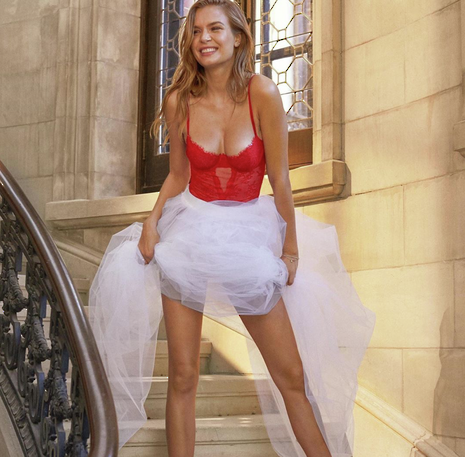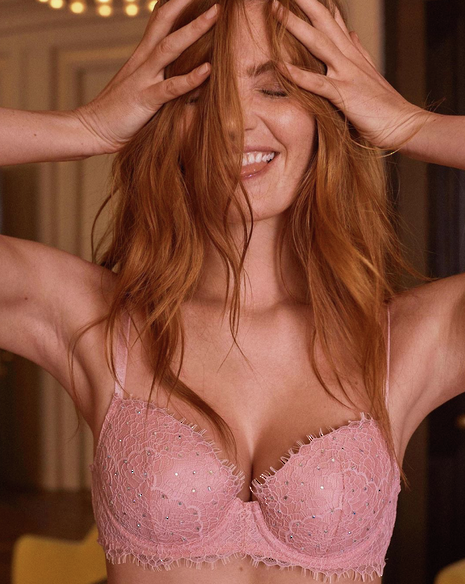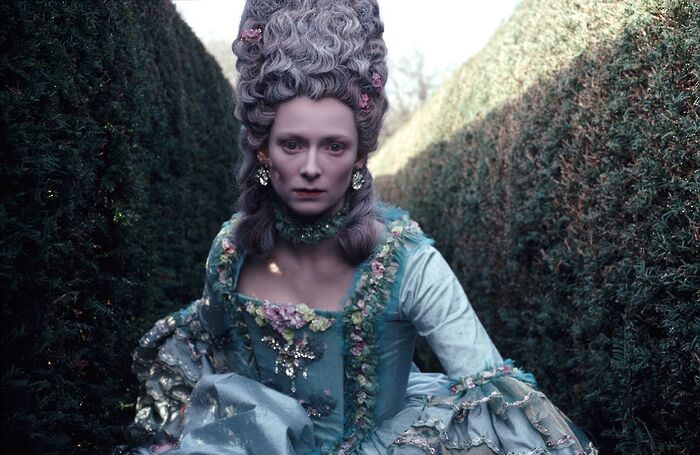Can Victoria’s Secret’s latest venture help the brand survive?
A succession of inadmissible controversies proves challenging for the brand to overcome, argues Olivia Emily

In August, when the Victoria’s Secret fashion show was cancelled, journalists called it an “identity crisis.” Mostly, the lingerie brand has been (rightly) criticised for their lack of body diversity, exclusively hiring “Angels” with that perfectly athletic, skinny-yet-curvy body type. However, it is an amalgamation of unacceptable offenses that makes Victoria’s Secret unsalvageable.
In 2001, 12 million people in America tuned in to watch the world-famous show, but in 2018 this fell to 3.3 million.
In 2012 and 2016, Victoria’s Secret was criticised for their blatant cultural appropriation, on both occasions having sexualised and stereotyped East Asian culture. Last year, in a now-infamous interview with Vogue, then-chief marketing officer for Victoria’s Secret, Ed Razek, made transphobic comments. Most recently, Leslie Wexner (the CEO of L Brands, the parent brand of Victoria’s Secret) has been criticised for his close ties to Jeffrey Epstein – an unacceptable connection always, but especially so in a post #MeToo world.
The company is trying to revitalise its image so as to not only succeed in a modern climate, but to continue existing
Such controversies are inadmissible, and viewing figures reflect the world’s depleting interest in their annual fashion show: in 2001, 12 million people in America tuned in to watch the world-famous show, but in 2018 this fell to 3.3 million.
Hence, this “identity crisis”: the company is trying to revitalise its image so as to not only succeed in a modern climate, but to continue existing (cancel culture is a big threat). In an attempt to “evolve the marketing of Victoria’s Secret,” the lingerie company recently collaborated with Greta Ilieva and Vogue.

Granted, Ilieva’s photography and ethos is beautiful: “I see beauty in imperfections,” she told Vogue, also telling her models to “imagine shooting their own pictures, and to think about how they would like to be seen,” combatting the male gaze female models are so frequently photographed through.
However, this ethos is difficult to align with the historical ethos of Victoria’s Secret, a show originally (if not still) designed by men, to please men. Of course, lingerie can be enjoyed by women: it can be empowering and make us feel sexy. As Rihanna said, “Women should be wearing lingerie for their damn selves,” and this is the version of lingerie that she sells – and sells well. But there’s something uncomfortable about a male-run, historically sexist (and sexualising) company telling me how I should go about feeling sexy.
Pasting Ilieva’s words on top of Victoria’s Secret’s new line of lingerie does not change its substance. It has been “designed for real women,” we’re told, and yet the showcased pieces are all unfunctional: a chainmail bra, meshy body suits, spaghetti straps likely with very little support. It’s an ongoing narrative that lingerie should be visually pleasing (to men) but structurally useless (for women).
It also does not change the aforementioned controversies that Victoria’s Secret fails to address. Knowing about their racism, their transphobia and their association with sex offenders, reading the news stories about how the Angels starve themselves in preparation for the show, and then witnessing this parade of women walk down a catwalk, all with the ‘perfect’ body type, long flowing hair and perfectly glossy skin, I find the whole situation extremely uncomfortable, and I’m glad it won’t be happening again this year. I’m glad the young women of 2019 and 2020 will be spared at least one instance of being told how to look.
Though the more neutral tones of Greta Ilieva’s photo shoot make for a more-naturalised, less-performative depiction of women in their underwear, Victoria’s Secret still misses the mark. The models are still conventionally beautiful and, though Taylah Kereama is curvier than Victoria’s Secret is used to, she is by no means plus-size (as they have been frequently criticised for).
They need to address their own prejudices, challenge them, and create functional underwear.
If Victoria’s Secret has to do a paid collaboration with Vogue in order to try to clear their name (a magazine which, in this very article, has a ‘read more’ link to their ‘Ultimate Lingerie Guide’ that doesn’t even include Victoria’s Secret – a testament to their growing contemporary irrelevance), it is clear they’re still missing something. Women are rejecting their racist, sexist and transphobic rhetoric. Karlie Kloss left Victoria’s Secret in 2015, rejecting the brand’s configuration of “what it means to be beautiful.” Women are no longer buying into the male-centric gaze that this company is peddling.
Krista Burton wrote that Victoria’s Secret should “evolve or die” – since evolution is proving difficult, we might be witnessing the brand’s downfall. If they really want to start a ‘new chapter’ and close the door on their exclusionary and discriminatory past, Victoria’s Secret need to do more than hire a female photographer to take naturalistic photos. They need to address their own prejudices, challenge them, and create functional underwear that women want to wear because of an internally-driven desire, not because a male-headed company hiding behind a female-led campaign tells them to.
 News / Caius mourns its tree-mendous loss23 December 2025
News / Caius mourns its tree-mendous loss23 December 2025 Comment / Yes, I’m brown – but I have more important things to say22 December 2025
Comment / Yes, I’m brown – but I have more important things to say22 December 2025 News / Cambridge welcomes UK rejoining the Erasmus scheme20 December 2025
News / Cambridge welcomes UK rejoining the Erasmus scheme20 December 2025 News / CUP announces funding scheme for under-represented academics19 December 2025
News / CUP announces funding scheme for under-represented academics19 December 2025 Interviews / Politics, your own way: Tilly Middlehurst on speaking out21 December 2025
Interviews / Politics, your own way: Tilly Middlehurst on speaking out21 December 2025











